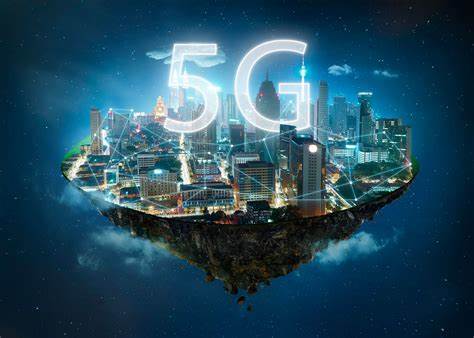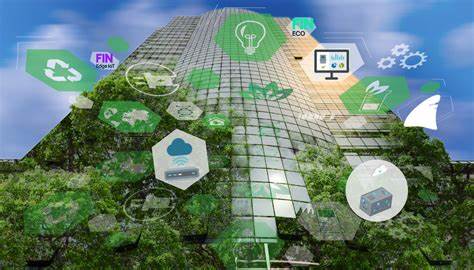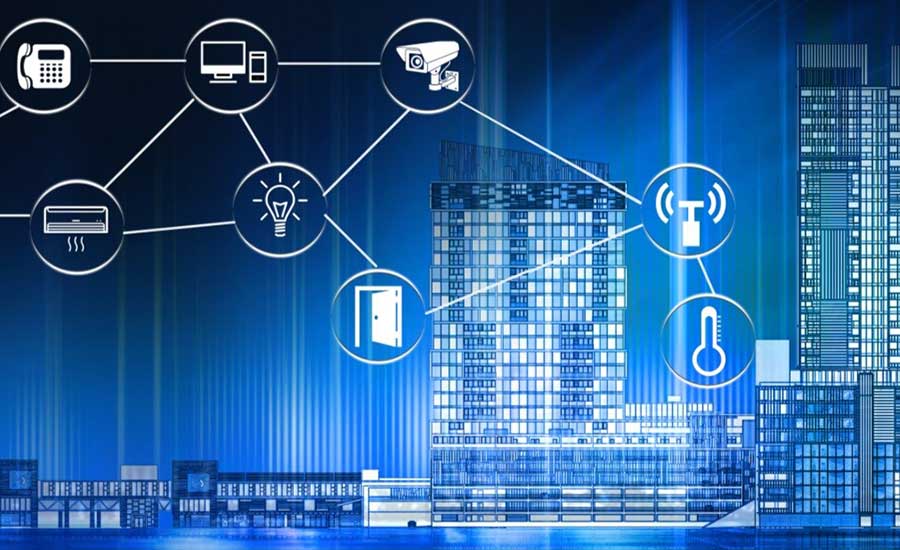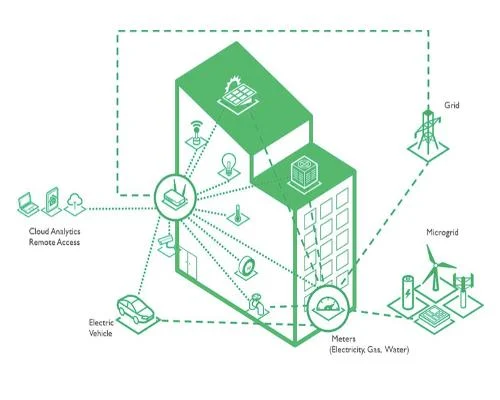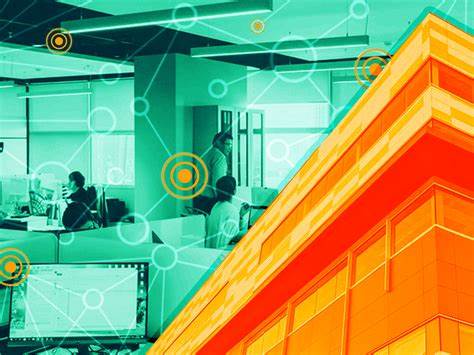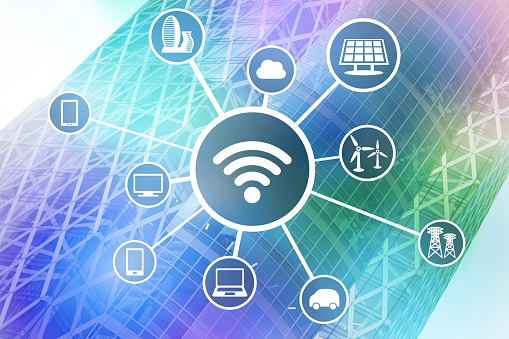Building Owners and Sustainability: Creating a Greener Future Introduction Sustainability in the built environment is of utmost importance in today’s world. As the effects of climate change become more prevalent, building owners need to play an active role in promoting sustainability. This article explores the significance of building owners’ involvement in sustainability initiatives, emphasizing their responsibility towards creating a greener future. Historical Background The evolution of sustainability practices in buildings has a rich history. Early efforts by building owners to promote sustainability laid the foundation for the eco-conscious practices we see today. These pioneers recognized the need for responsible resource…
Author: jenks2026
The Impact of Smart Building Technology during a Pandemic: Lessons Learned Introduction Smart building technology has emerged as a crucial tool in managing the challenges posed by the COVID-19 pandemic. This article explores the historical background, key concepts, and current trends of smart building technology in the context of a pandemic. Understanding the relevance and significance of smart building technology is essential as we navigate the lessons learned from the pandemic. Historical Background The development of smart building technology can be traced back to advancements in automation and the Internet of Things (IoT). Over the years, the evolution of smart…
Introduction The intersection of 5G and smart buildings represents a groundbreaking development in the world of technology and urban infrastructure. As smart buildings continue to evolve and integrate technology, the introduction of 5G networks promises to revolutionize the way these buildings function, communicate, and operate. This article explores the historical background, key concepts, benefits, challenges, case studies, current trends, controversies, and future outlook of the intersection of 5G and smart buildings. Historical Background The evolution of smart buildings can be traced back to the integration of technology into building management systems. From the early days of automated heating and cooling…
The Green Revolution and Smart Buildings: Reducing Carbon Footprints Introduction The focus on the Green Revolution and smart buildings has grown significantly in recent years as the world grapples with the urgent need to reduce carbon footprints and mitigate the impacts of climate change. This article aims to provide a comprehensive overview of the Green Revolution and the crucial role that smart buildings play in achieving sustainability goals. Historical Background The origins of the Green Revolution can be traced back to the mid-20th century when agricultural practices underwent a significant transformation to increase food production. However, over time, the term…
The Future of Productivity: Unlocking the Potential of Smart Office Spaces Introduction In today’s fast-paced and competitive business landscape, organizations are constantly seeking innovative ways to enhance employee productivity. One such solution gaining traction is the concept of smart office spaces. This article aims to explore the various aspects of this emerging trend and its impact on elevating employee productivity in the workplace. Historical Background The evolution of office spaces and workplace design has come a long way. From traditional cubicles and closed-door offices to open-plan layouts, there has been a shift towards creating more collaborative and dynamic work environments.…
Investing in Smart Buildings: A Wise Choice for Real Estate Developers Introduction Investing in smart buildings has become increasingly popular in the real estate industry as developers recognize the numerous benefits that come with these technologically advanced structures. Smart buildings incorporate various technologies and systems that enhance efficiency, sustainability, and overall tenant experience. In this article, we will explore the importance of investing in smart buildings for real estate developers and discuss the key concepts, benefits, and challenges associated with these innovative structures. Historical Background Smart buildings have evolved significantly since their inception in the 1980s when computerized building automation…
The Art of Retrofitting: Transforming Old Buildings into Smart Ones Introduction In today’s era of sustainable development, retrofitting old buildings has emerged as an interesting and innovative approach. This article provides an overview of the significance of retrofitting, its historical background, key concepts, benefits, techniques, case studies, current trends, challenges, and future outlook. Historical Background Retrofitting, although a contemporary concept, has its roots in the past. Over time, retrofitting techniques and technologies have evolved, leading to more efficient and effective ways of transforming old buildings into smart ones. Key Concepts and Definitions To better understand retrofitting, it is important to…
The Psychology of User Adoption in Smart Buildings Introduction The adoption of smart building technologies is increasingly important in today’s world. Smart buildings offer numerous benefits, including improved efficiency, sustainability, and user experience. However, user adoption is crucial for these benefits to be fully realized. Understanding the role of psychology in influencing user adoption is essential in designing and implementing successful smart building technologies. Historical Background Smart buildings have evolved over time, integrating technology to enhance their functionalities. However, early challenges and barriers hindered user adoption. These challenges ranged from the complexity of technology interfaces to the lack of awareness…
Introduction Smart building technology has emerged as a catalyst for innovation, reshaping the way buildings are designed, constructed, and operated. In the modern world, where sustainability, energy efficiency, and occupant comfort are paramount, the adoption of smart building technology has become increasingly important. This article aims to explore the historical background, key concepts, and main discussion points related to smart building technology as a driver of innovation. Historical Background The evolution of building technology has been marked by significant milestones and breakthroughs. From the introduction of basic automation systems to the integration of advanced sensor networks, the journey towards smart…
Smart Buildings: Debunking Myths and Unveiling True Potential Introduction Smart buildings have revolutionized our interaction with the environment. Equipped with cutting-edge technology and automation systems, these buildings enhance efficiency, comfort, and security. However, several myths surround smart buildings, which need to be debunked to understand their true potential and benefits. Historical Background Smart buildings have a fascinating history dating back to the early 20th century. The concept gained traction in the 1970s with the introduction of automation systems in commercial buildings. Over the years, advancements in technology and the rise of the Internet of Things (IoT) have propelled smart buildings…
Building Automation: Shaping the Future of Intelligent Buildings Introduction The advancement of technology has led to a revolution in building automation, changing the way we manage and operate buildings in today’s world. To gain a better understanding of the future of building automation and its potential impact on various industries, insights from industry leaders are crucial. Historical Background Building automation has come a long way since its origins in the early 20th century, when simple electrical controls were used to automate repetitive tasks in buildings. However, with the introduction of computer-based systems in the 1970s, building automation evolved into a…
Enhancing Building Resilience in the Face of Climate Change Introduction The growing threat of climate change has significant implications for the resilience of buildings and infrastructure. As extreme weather events become more frequent and intense, it is crucial to enhance building resilience to mitigate potential damages. This article aims to explore the importance of designing and constructing climate-resilient buildings, strategies for enhancing building resilience, effective planning and policy measures, real-world case studies, current trends and developments, challenges and controversies, and future implications. By understanding and implementing these concepts, we can ensure the long-term safety and sustainability of our built environment.…
Smart Building Communities: Shaping the Future of Urban Living Introduction Smart building communities have gained significant relevance in urban living, revolutionizing the way we interact with our environment. As technology continues to advance, the concept of smart building communities has become increasingly important. This article aims to explore the historical background, key concepts, benefits, technological advancements, social aspects, case studies, current trends, challenges, future outlook, and the significance of smart building communities in shaping the future of urban living. Historical Background Urban living has evolved over time, giving rise to the emergence of smart building communities. In the past, cities…
Empowering Facility Managers with Smart Building Solutions Introduction In today’s rapidly evolving world, facility managers face numerous challenges in effectively managing buildings and ensuring optimal performance. However, the emergence of smart building solutions offers a new approach to empower facility managers and transform the way facilities are managed. This article explores the concept of empowering facility managers with smart building solutions and delves into its relevance and importance in modern facilities management. Historical Background Facilities management has witnessed significant evolution over the years, with traditional approaches focusing on manual processes and reactive maintenance. However, the adoption of smart building technologies…
Smart Buildings and the Remote Work Revolution: Embracing the Future of Work Introduction In today’s rapidly evolving work landscape, the concept of Smart Buildings and the Remote Work Revolution has gained significant prominence. As technology continues to advance, so does the way we work. Smart Buildings, equipped with cutting-edge automation, connectivity, and data-driven decision-making capabilities, are revolutionizing the traditional office environment. This article aims to explore the historical background, key concepts and definitions, main discussion points, case studies, current trends, challenges, and future implications of Smart Buildings and the Remote Work Revolution. Historical Background To understand the full scope of…
The Ethical Considerations of AI in Smart Building Design Introduction AI technology has revolutionized many industries, including the field of smart building design. As buildings become increasingly intelligent and interconnected, it is crucial to address the ethical implications of integrating AI into these structures. This article explores the importance of AI ethics in smart building design and its relevance in ensuring the well-being and privacy of building occupants. Historical Background The Evolution of AI Ethics in Smart Building Design Throughout history, the concept of AI ethics has evolved alongside advancements in technology. In the context of smart building design, the…
The Influence of Smart Building Design on Human Behavior Introduction Smart building design has become increasingly relevant in modern society, as it has the potential to significantly impact human behavior. Understanding the influence of smart building design on behavior is crucial for creating spaces that promote productivity, well-being, and sustainability. Historical Background The evolution of building design has always had a profound impact on human behavior. From ancient structures designed for communal living to the rise of skyscrapers in urban environments, buildings have shaped the way we interact with our surroundings. The introduction of smart building technologies in recent years…
Smart Building Data Privacy Laws: Safeguarding the Future Introduction Smart buildings, equipped with advanced technologies to optimize energy usage and enhance occupant comfort, have become increasingly prevalent in today’s urban landscape. However, the collection and utilization of data in these buildings raise significant concerns surrounding privacy and security. This article delves into the realm of smart building data privacy laws, exploring their historical background, key concepts, and implications. By understanding these laws, stakeholders can navigate the complexities of data collection, consent, storage, and security, ensuring compliance while safeguarding privacy rights. Historical Background The evolution of smart buildings has paved the…
Government Initiatives Promoting Smart Buildings: Revolutionizing the Future of Infrastructure Introduction The concept of smart buildings has gained significant traction in recent years, thanks to various government initiatives aimed at promoting sustainable and technologically advanced infrastructure. This article aims to delve into the importance and relevance of these initiatives, while also exploring the historical background and key concepts surrounding smart buildings. Historical Background The evolution of smart buildings can be traced back to rapid advancements in technology and the increasing global focus on sustainability. Government initiatives promoting smart buildings have emerged worldwide, with a common objective of creating energy-efficient and…
Introduction The rapid advancements in technology have revolutionized the way we interact with our environment, and smart building networks have emerged as a key component in creating intelligent and efficient spaces. At the heart of these networks lies the powerful Wi-Fi 6 technology, which is poised to transform the way we connect and communicate within smart buildings. In this article, we will explore the importance and relevance of Wi-Fi 6 in smart building networks and delve into its impact on various aspects of this rapidly evolving ecosystem. Historical Background To truly understand the significance of Wi-Fi 6 in smart building…




